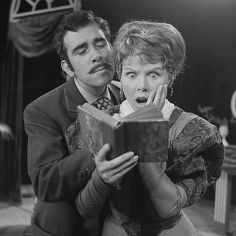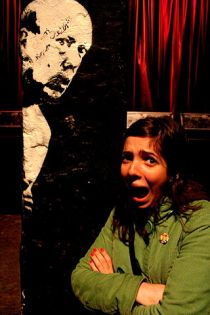We’ve all been told that we have only a couple of pages to hook a reader. I think that’s wrong. I think the hook comes in the first page. The first paragraph. The first sentence.
Last weekend, I was at a workshop devoted to the first 100 words of a novel. That’s right – 100 WORDS.
I think that first paragraph can hook a reader not just into one book – but into an author’s storytelling and writing style. One sentence can turn a first time reader into a lifelong fan. It has happened to this reader – more than once.
I remember my first encounter with the great Mary Stewart. I was about thirteen and dreaming of escaping small town Australia to have adventures in the big wide world.

How outdated the cover seems now – the writing dates too, but it’s good enough to overcome that.
I opened a battered second hand copy of The Moonspinners.
It was the egret flying out of the lemon grove that started it.
Everything about that sentence is wrong – Any writing tutor (myself included) would tell you never start a book with a passive sentence. And certainly not with ‘It was..’
But there was something about this opening line that spoke to me. I could see the bird flying low over the lemon grove. I could smell the fruit and feel the sun. My mind’s eye watched the bird fly past and wanted to go with it.
I could no more have put that book down that fly with the egret.
From that first line, I was an avid fan of Ms Stewart. I had read and re-read her books – and she has never let me down.
Of course, that’s important too. A really great opening line has to be the beginning of a great book. And I’ve usually found that it is.
In the first place I suppose it was my parents’ fault for giving me a silly name like Gianetta. – Wildfire at Midnight – also by Mary Stewart. Another line that beaks rules but totally works.
Of course – she’s not alone in writing great first lines. So many books call to me from the bookshelf…
Last Night I dreamt I went to Manderley again. – Rebecca by Daphne Du Maurier

Another of the world’s best opening lines – and a book I have re-read a dozen times.
To begin at the beginning: It is spring, moonless night in the small town, starless and bible-black. –Under Milk Wood by Dylan Thomas.
Here is Edward Bear, coming downstairs now, bump, bump, bump, on the back of his head, behind Christopher Robin. – Winnie the Pooh by A.A. Milne.
It was a bright cold day in April, and the clocks were striking thirteen. –1984 by George Orwell.
It was the day my grandmother exploded. – The Crow Road by Iain M. Banks,
In a hole in the ground there lived a hobbit. – I really don’t have to tell you who that was, do I?
OK – I’ll stop now, but my point is this…
These lines transport me instantly to that other time and place – and whether it’s a child’s mind or a dystopian nightmare, I am instantly caught up in the story. My mind and heart are opened to whatever the writer want to tell me next. And it doesn’t matter that I have read the book before, or read it ten times before – the magic never fades.
Writing styles, like fashion, change over time. But a good opening line never fades.
Have you even sat up all night just reading the first lines of all your favorite books? I tried. I really did – but who could possibly read…
I suppose that my mother could have been a witch if she had chosen to…
or
Not every King would care to start his reign with the wholesale massacre of children.
… and then close the book? (Yes – they are both Mary Stewart again.)
I just went back and looked at the opening line of my next Coorah Creek book (due for release in June).
The huge yellow machine inched forward on wheels that were twice the height of the watching men.
Hmmmm…. Not quite to Mary Stewart’s standard, but then she set the bar pretty high. I start edits on the book soon. You never know, by the time you see it, it may just keep you up all night reading, as Mary Stewart did to me so many times.

 Many congratulations to Irene Wright, winner of my competition.
Many congratulations to Irene Wright, winner of my competition.
 What if you write total crap? What if you have no talent? Or for some the reverse might paralyze. What if you become successful beyond your wildest dreams? Will your friends still love you? Will you be able to handle the heat?
What if you write total crap? What if you have no talent? Or for some the reverse might paralyze. What if you become successful beyond your wildest dreams? Will your friends still love you? Will you be able to handle the heat? the suspicion I may have exposed some tormented aspects of my psyche, I bolted to South America instead. Years later, my sister Pam and I entered the novel-writing arena, knees shaking, hand in trembling hand, as we together we dared the
the suspicion I may have exposed some tormented aspects of my psyche, I bolted to South America instead. Years later, my sister Pam and I entered the novel-writing arena, knees shaking, hand in trembling hand, as we together we dared the  cists as well. For a shy reserved writer, what could be worse than having to blow your own trumpet, fight against the self-effacing little girl inside that wants to shriek, ‘Don’t bother reading my work, it really isn’t very good!’?
cists as well. For a shy reserved writer, what could be worse than having to blow your own trumpet, fight against the self-effacing little girl inside that wants to shriek, ‘Don’t bother reading my work, it really isn’t very good!’?
 We’re offering a paperback copy of our latest book,
We’re offering a paperback copy of our latest book,  Then I was asked to repeat it a couple of times at other events.
Then I was asked to repeat it a couple of times at other events. Yesterday, I ran a one-day workshop for Writing East Midlands in Nottingham, Writing Romantic Fiction, so I thought I’d use it as an example, to give you some idea of how these things evolve.
Yesterday, I ran a one-day workshop for Writing East Midlands in Nottingham, Writing Romantic Fiction, so I thought I’d use it as an example, to give you some idea of how these things evolve.
